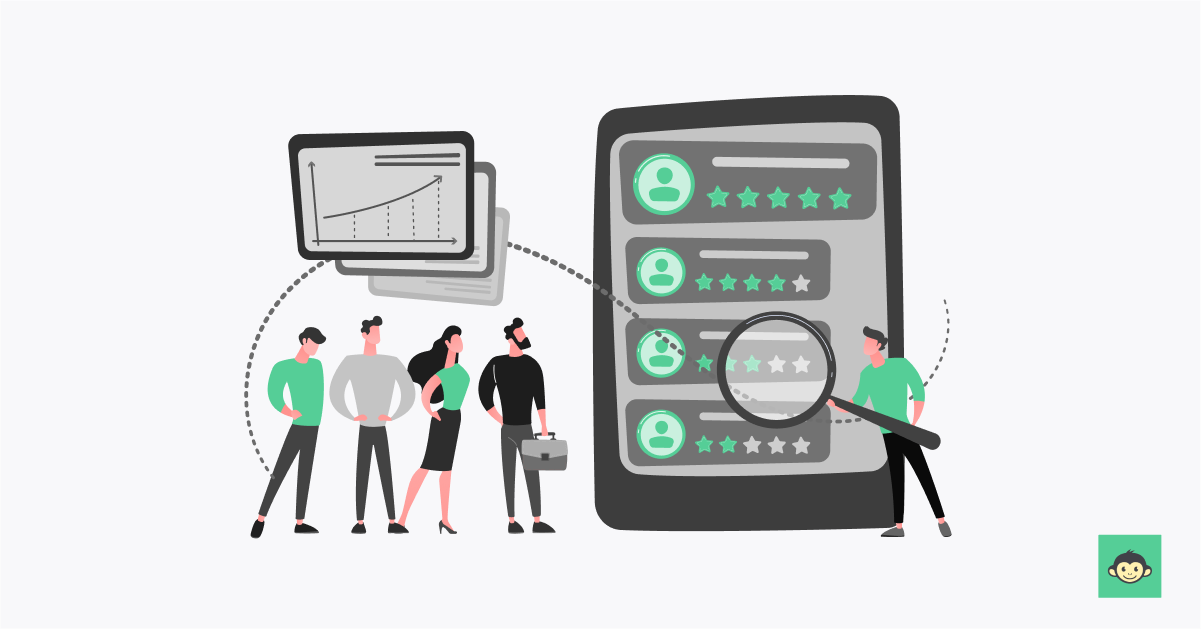Everything you should know about social recognition in the workplace

Human beings are inherently social creatures, seeking validation and acceptance from their peers. Social recognition serves as a catalyst for positive reinforcement, encouraging individuals to strive for excellence and contribute meaningfully to their communities.
Be it in the workplace, educational institutions, or within online networks, the impact of being acknowledged and valued reverberates throughout various aspects of our lives.
This blog aims to delve into the multifaceted dimensions of social recognition, exploring its psychological underpinnings, societal implications, and the role it plays in shaping individual and collective identities.
What is social recognition?

Social recognition is the act of acknowledging and appreciating individuals for their contributions within social or professional contexts. It extends beyond mere validation, fostering a sense of belonging and motivation.
In workplaces, educational settings, or online communities, social recognition plays a pivotal role in shaping behavior, encouraging excellence, and creating a positive, interconnected environment. It taps into the fundamental human need for validation, contributing to the development of supportive and collaborative communities.
Why is social recognition important at work?
Social recognition holds paramount importance as it fulfills fundamental human needs for validation and belonging. Acknowledging individuals' contributions fosters a positive environment, motivating them to excel in their endeavors.
This positive reinforcement enhances morale, job satisfaction, and overall well-being, leading to increased productivity and collaboration in professional settings.
Additionally, in social and community contexts, social recognition platforms build strong interpersonal bonds, creating a supportive network. By addressing the intrinsic human desire for acknowledgment, social recognition becomes a catalyst for individual growth, organizational success, and the establishment of cohesive, thriving communities.
Its significance lies in shaping positive behaviors, fostering motivation, and contributing to the overall well-being of individuals and groups.
What are the benefits of social recognition in the workplace?

Social recognition in the workplace yields a plethora of benefits. Let’s take a look at them.
- Enhanced morale and job satisfaction: Social recognition boosts employee morale and increases job satisfaction by acknowledging and rewarding employees by appreciating their contributions.
- Increased employee engagement and motivation: Recognized employees tend to be more motivated and engaged in their work, leading to higher levels of productivity.
- Strengthened workplace relationships: Social recognition fosters a sense of belonging and camaraderie among team members, improving interpersonal relationships and collaboration.
- Reduced turnover rates: Acknowledged and appreciated employees are more likely to stay with an organization, reducing turnover rates and improving employee retention.
- Positive organizational culture: Social recognition contributes to a positive organizational culture, attracting and retaining top talent.
- Individual and collective well-being: The practice positively impacts both individual well-being and the overall success of the workplace by creating a supportive and appreciative environment.
What are some examples of social recognition?

Here are some examples of social recognition that you can draw inspiration from.
- Verbal appreciation: Expressing gratitude and acknowledging someone's efforts through verbal praise during team meetings, one-on-one conversations, or public forums.
- Employee of the month awards: Recognizing outstanding employee performance by highlighting an exemplary employee through a monthly or quarterly award ceremony or by using social recognition software.
- Peer-to-peer recognition: Encouraging colleagues to acknowledge and appreciate each other's contributions through informal recognition programs or platforms.
- Written notes or emails: Send personalized thank-you notes, emails, or messages to individuals to express appreciation for their hard work or specific accomplishments.
- Spot awards: Providing on-the-spot recognition, such as small gifts, tokens, or certificates, for exceptional efforts or achievements.
- Social media shoutouts: Acknowledging and celebrating accomplishments publicly on social media platforms, showcasing individual or team successes.
- Team celebrations: Organizing team lunches, outings, or events to celebrate milestones, project completions, or exceptional teamwork.
- Professional development opportunities: Offering opportunities for skill development, training, or career advancement as a form of recognition for consistently high performance.
- Flexible work arrangements: Acknowledging outstanding contributions by providing employees with flexibility in work schedules or remote work options.
- Special assignments or projects: Recognizing employees by entrusting them with challenging or high-profile projects based on their demonstrated skills and dedication.
How to provide social recognition to employees?

Social recognition is a powerful tool to boost employee morale and foster a positive workplace culture. Verbal appreciation is fundamental—acknowledge and praise employees during team meetings, one-on-one discussions, or publicly to emphasize their contributions.
Establishing formal recognition programs, like Employee of the Month awards or peer-to-peer recognition initiatives, creates a structured framework for appreciating outstanding performance. Sending written notes, emails, or messages expressing gratitude adds a personal touch to recognition efforts. This can be done using employee recognition software.
Moreover, consider spot awards, offering on-the-spot recognition through small gifts or certificates for exceptional achievements. Utilizing social media for public shoutouts amplifies recognition, showcasing accomplishments to a broader audience.
Team celebrations, whether through lunches or outings, create an environment of collective appreciation. Supporting professional development or providing opportunities for career advancement for engaged employees further reinforces recognition.
Ultimately, acknowledging employees through various channels and incorporating flexibility into work arrangements demonstrates a commitment to recognizing and valuing their efforts, contributing to a motivated and engaged workforce.
Best Practices for Providing Social Recognition to Employees
By following these practices, organizations can improvise in offering social recognition to their employees.
Timeliness and consistency
Recognition is most impactful when it is timely and consistent. Acknowledge achievements promptly to ensure that employees feel valued in the moment. Establish consistent and meaningful recognition practices, whether through regular team meetings, monthly awards, or ongoing peer-to-peer acknowledgment.
Specific and personalized recognition
Be specific in acknowledging the contributions of employees. Highlight particular achievements or behaviors that set them apart. Personalize the recognition to show that it is tailored to each individual's unique strengths and efforts, making it more meaningful and sincere.
Inclusive recognition programs
Implement inclusive recognition programs that involve the entire workforce. This can include peer-to-peer recognition, where colleagues appreciate each other's contributions, fostering a company culture one of mutual respect and acknowledgment.
Public and private recognition
Strike a balance between public and private employee recognition too. Public acknowledgment during team meetings or through social media can boost morale and motivate others. However, some employees may prefer private recognition, so be attuned to individual preferences to ensure comfort and effectiveness.
Link recognition to organizational values
Align recognition with the organization's values and goals. This ensures that employees understand how their contributions contribute to the overall success and mission of the company. When a recognition program is tied to core values, it reinforces a sense of purpose and shared commitment among the workforce.
How do employee surveys help you to do social recognition in the workplace?

Employee surveys serve as invaluable tools in shaping effective social recognition strategies within the workplace. By regularly collecting feedback through surveys and social recognition platforms, organizations gain insights into employee preferences and motivations of the workforce.
These surveys provide a platform for employees to express their preferences regarding the frequency, format, and style of recognition they find most meaningful.
Moreover, employee surveys facilitate a nuanced understanding of the diverse needs within the workforce. By identifying specific accomplishments or behaviors that employees value, organizations can tailor recognition programs to align with individual preferences.
Surveys also uncover potential gaps or areas for improvement and initiatives, allowing for continuous refinement.
Furthermore, the data collected from surveys can inform the development of inclusive recognition programs, ensuring that all employees, regardless of role or level, feel seen and appreciated. Overall, employee surveys play a pivotal role in cultivating a workplace culture where social recognition is not only practiced but is also aligned with the unique dynamics and preferences of the workforce.
13 Social recognition at work ideas to try in 2024
These 13 ideas will change the landscape of social recognition at your workplace in 2024.
- Virtual recognition platforms: Implement or enhance virtual platforms that facilitate peer-to-peer recognition, allowing employees to acknowledge each other's achievements in an online environment.
- Recognition wall or channel: Create a digital or physical wall where employees' accomplishments, milestones, or expressions of gratitude are prominently displayed for the entire team to see.
- Interactive recognition apps: Introduce mobile apps or platforms that enable real-time, interactive recognition, allowing employees to send kudos, virtual badges, or personalized notes instantly.
- Monthly recognition newsletter: Develop a monthly newsletter highlighting outstanding contributions, achievements, and milestones, and share it with the entire organization to celebrate successes collectively.
- Team recognition rituals: Establish regular team rituals, such as virtual stand-ups or meetings, where team members can express appreciation for each other's efforts and successes.
- Customizable recognition rewards: Offer employees the flexibility to choose their recognition rewards, such as gift cards, professional development opportunities, or additional time off.
- Recognition challenges or contests: Create friendly competitions or challenges that encourage employees to recognize their peers for specific achievements, fostering a culture of continuous acknowledgment.
- Surprise recognition moments: Incorporate unexpected moments of recognition, such as impromptu video shoutouts during team meetings, to add an element of surprise and excitement.
- Leadership recognition circles: Encourage leaders to form recognition circles, where they express appreciation for each team member, promoting a culture of gratitude and mutual acknowledgment among leadership.
- Skill-specific recognition: Recognize employees not only for their overall contributions but also for specific skills or expertise they bring to the team, highlighting the unique value each individual provides.
- Celebration events: Host virtual or in-person celebration events for major milestones, project completions, or outstanding team achievements, allowing everyone to come together and revel in shared successes.
- Recognition training programs: Provide training programs for managers and team members on effective recognition techniques, ensuring that acknowledgment is sincere, specific, and aligned with organizational values.
- Employee recognition committees: Form employee-led recognition committees that actively gather and implement innovative ideas for recognizing achievements, ensuring a diverse and inclusive approach to social recognition in the workplace.
15 Employee engagement survey questions to ask regarding social recognition

- Do you feel recognized and appreciated for your contributions in the workplace?
- How satisfied are you with the current social recognition programs in the company?
- On a scale of 1 to 10, how valued do you feel by your colleagues and superiors?
- Do you believe that social recognition positively impacts the overall work environment?
- Are you aware of the various channels available for social recognition within the organization?
- How frequently would you prefer to receive social recognition for your achievements?
- In your opinion, is social recognition consistently applied across all levels and departments?
- Do you find public recognition, such as in team meetings or through social media, motivating?
- Would you prefer private or public acknowledgment for your accomplishments?
- To what extent do you think social recognition contributes to your job satisfaction?
- Are there specific achievements or behaviors you believe should be recognized more frequently?
- Do you think social recognition is linked to the organization's values and goals?
- How well do social recognition efforts align with your personal preferences and expectations?
- Do you believe that social recognition has a positive impact on team collaboration and dynamics?
- Are there any improvements or changes you would suggest to enhance social recognition in the workplace?
How to act on the employee survey data on workplace social recognition?
Acting on employee survey data regarding workplace social recognition is crucial for fostering a positive and engaging work environment. Firstly, analyze the survey results comprehensively, identifying trends, patterns, and areas for improvement.
Pay attention to specific feedback on the effectiveness of current social recognition initiatives and programs and employee preferences.
Communication is key—sharing the survey results with employees, outlining the planned changes, and demonstrating a commitment to addressing their feedback. Implement the proposed adjustments to recognition programs, ensuring they align with organizational values and goals.
Regularly reassess the impact of these changes through ongoing surveys to gauge employee satisfaction and make iterative improvements. By actively responding to survey data, organizations can create a workplace culture where social recognition is not only valued but is continually optimized to meet evolving employee needs.
How can social recognition help you improve your retention rates in 2024?
In 2024, social recognition remains a potent tool for enhancing employee retention rates. Acknowledging and appreciating employees for their contributions fosters a positive work environment, boosting morale and job satisfaction. Recognized employees are more likely to feel valued and connected, reducing the likelihood of turnover.
Social recognition programs, when aligned with organizational values and goals, contribute to a sense of purpose, making employees more committed to staying with the company.
By leveraging social recognition to create a culture of appreciation and continuous feedback, organizations can strengthen employee loyalty, leading to improved retention rates in the dynamic landscape of 2024.
Conclusion
Social recognition is a transformative force in the workplace, nurturing a positive culture that values and appreciates individual contributions. By leveraging employee feedback through surveys and implementing thoughtful social recognition program practices, organizations can create environments where employees feel acknowledged, motivated, and integral to collective success.



